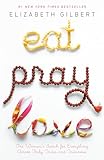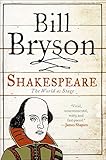
[Cross-posted at
Ex Libris]
Title: Witness to Nuremberg Author: Richard W. Sonnenfeldt
Rating: 4/5
Last year I saw the author of this book, Richard W. Sonnenfeldt, on BookTV. Sonnenfeldt, in 1945 and at the age of 22, was the lead interpreter for the prosecution at the trial of Nazi war criminals in Nuremberg, Germany. His story, that of a young German Jew who managed to escape Nazi Germany and eventually found himself a soldier in the US Army and an interpreter to and for those very persons who tried so hard to obliterate his existence, was fascinating. I just had to read this, so I bought the book the next time I went to Borders.
Sonnenfeldt begins the book in 1945-46 with his experiences as an interpreter in Nuremberg. There, he spent hundreds of hours interviewing (and sometimes interrogating) Hitler's notorious henchmen. Sonnenfeldt felt scorn and disgust for most of them such as Joachim von Ribbentrop, "a platitudinous, babbling one-time champagne salesman and social climber who had become Hitler's foreign minister" (pg. 24). There was one, though, he felt belonged in a "class of his own" - Hermann Goring, Hitler's evil second in command who organized and managed the Gestapo, the Nazi terrorist machine. Sonnenfeldt wanted to know, more than anything else, why the German people would so willingly want war. When he asked Goring this question, this was the response:
"Why of course the people don't want war. Why would some poor slob on a farm want to risk his life in a war when the best he can get out of it is to come back to his farm in one piece? Naturally, the common people don't want war, neither in Russia, nor in England, nor in America, nor in Germany. That is understood. But, after all, it is the leaders of the country who determine the policy and it is always a simple matter to drag the people along, whether it is a democracy, or a fascist dictatorship or a parliament or a Communist dictatorship. The people can always be brought to the bidding of the leaders. That is easy. All you have to do is tell them they are being attacked and denounce the pacifists for lack of patriotism and exposing the country to danger. It works the same in any country." (pg. 30-31)
Sonnenfeldt spends the first two chapters of the book discussing the trials at Nuremberg. The rest of the book is the story of his remarkable life journey that brought him there. Sonnenfeldt describes his childhood, living with his parents (both respected doctors) and his younger brother in a small German town. They were non-practicing Jews who were more concerned with abiding by Prussian principles than with religious beliefs. But when the Nazis began their persecution of the Jews (both practicing and non-practicing), Sonnenfeldt's parents realized they would have to leave Germany. In 1938, Sonnenfeldt's mother managed to get the two boys enrolled in a school in England. Sonnenfeldt and his brother were very happy there, but in the summer of 1940, the English began interring males age 16 and older who held German passports. Sonnenfeldt was forced to leave England and his brother behind on an interment ship. His parents were finally able to escape Germany to the United States, but it would take Sonnenfeldt another year to be reunited with them. When he did, he enlisted in the Army and eventually found himself being asked to serve as an interpreter.
This memoir was less about the trial at Nuremberg and far more about first hand experience and an insider's look at the horrors brought upon a large group of people, German as well as many other nationalities, by the Nazis simply because of their ethnic background. I liked the book well enough, although I had hoped for more detail on the interviews and events at Nuremberg. The writing was nothing out of the ordinary, but the story itself was incredible as only non-fiction can be.
Sharon (Ex Libris)

 Jacobs, the author of The Know-It-All; explores how TV quiz shows were popular in the early days of television, lost their credibility due to scandal, slowly regained respect and attained new heights when "Who Wants To Be A Millionaire?" hit the airwaves; travels incognito to check out the pub trivia scene and, with a fellow Quiz Bowl alum and buddy, attends an annual 54-hour tournament in a small town in Wisconsin that grips townspeople both young and old with trivia fever that often spills over into obsession.
Jacobs, the author of The Know-It-All; explores how TV quiz shows were popular in the early days of television, lost their credibility due to scandal, slowly regained respect and attained new heights when "Who Wants To Be A Millionaire?" hit the airwaves; travels incognito to check out the pub trivia scene and, with a fellow Quiz Bowl alum and buddy, attends an annual 54-hour tournament in a small town in Wisconsin that grips townspeople both young and old with trivia fever that often spills over into obsession.






 [Cross-posted at
[Cross-posted at 



